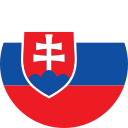
Between Fjords and the Carpathians

Component III (Component III)
EDUCATION PROGRAMME
Institutional cooperation for the improvement of quality and relevance of Vocational Education and Training (VET) and vocational continuing education
(Współpraca instytucjonalna na rzecz poprawy jako´sci i dopasowania kształcenia i szkolenia
zawodowego (VET) oraz kształcenia ustawicznego)
Source of funding:
EEA Financial Mechanism 2014-2020, Education Programme
Project title
Between Fjords and the Carpathians - Platform for the exchange of experiences in the field of tourism education
Project start date
2022-02-01
Project end date
2024-01-31
A summary of the project
The main idea of the project is to improve the quality of vocational education at the secondary and higher level in the field of tourism in the border area of the Polish part of the Carpathian Euroregion, using Norwegian models. The project will result in the activation of employment of graduates of vocational schools and the Bronisław Markiewicz State University of Technology And Economics (PWSTE) in Jarosław by entities operating in tourism industry in the border area. In order to achieve these assumptions, the project provides for the development by the Scientific Team of proposal for new, two curricula at the secondary and higher vocational level, which will be implemented in schools by the Applicant, and then by subsequent schools in the Carpathian Euroregion, ensuring long-term benefits.The innovative character will be ensured by the cooperation platform created in the project in the form of two types of workshops: a co-creation workshop and quality circles. Scheduled study visits will allow the exchange of experiences between partners. An element of effective promotion will be the Carpathian Educational Forum, devoted to tourism education, attended by specialists from Poland and abroad.
Project participants
- Bronisław Markiewicz State University of Technology and Economics in Jarosław (PWSTE)
- Association of the Carpathian Euroregion Poland
- Nord University
Project description
In order to prevent depopulation of the area and the phenomena of marginalization of border areas, the project activities are aimed at improving the quality of educational services in the VET sector and adapting education to labour markets through the transfer of educational innovations in tourism corresponding to the challenges of internationalization of Carpathian destinations, implementation of the sectoral qualifications framework in tourism at the vocational level. It was planned to create an innovative platform for cooperation between employers, students and teaching staff, as well as experts in the field of tourism, in the form of organized co-creation workshops and quality clubs, taking into account the dual system. The workshops will be based on close cooperation between entrepreneurs and students of PWSTE and vocational schools. Students will perform tasks similar to those they will do in the future, once they become full-fledged employees of companies operating in the field of tourism.
Planned activities
-
The research includes the appointment of a research team (domestic and foreign, partners) and development of analysis of the initial situation in the field of vocational education offer (at the higher and secondary level, together with an analysis of the labour market needs in the tourism sector. The research will include 4 meetings (2 analysis , 2 strategy). A competency gap will be determined, which will be the basis for adjusting the offer of PWSTE and vocational schools to the real needs of the labour market. Result of the analysis will be a summary report, developing an educational strategy in a socialized manner, i.e. including consultations with representatives of the local labour market.Document will include SWOT analysis and indicate solutions for vocational education and improvement of cooperation between participants of the tourism sector(including the regional model of cooperation between the education and tourism sectors)and solutions in the field of dual education.
- Creating a proposal for 2 vocational education curricula in the field of tourism, i.e. for PWSTE and vocational secondary school. Establishing an international Scientific Team to develop a proposal for educational programmes in vocational universities and secondary schools. When creating a model curriculum, the Sectoral Qualifications Framework for the tourism will be used, and the educational and labour market needs identified at an earlier stage will also be taken into account. The programme will be a support tool for the ”Carpathia” brand. As a result of remote work and during two meetings of the team, the Sector Qualification Framework of the ”Carpathia” brand will be created, built on the basis of SQF in tourism, containing key professions and qualifications necessary for the effective implementation of the Carpathia brand and stimulation of the labour market in the Carpathians. As part of the development of the programmes, 2 expert meetings will be held.
-
A study visit to Norway to learn about the system of functioning of vocational education and the dual model of cooperation between schools and entrepreneurs. A visit - for training staff and the best PWSTE students. During the visit, participants will have the opportunity to visit Norwegian companies related to the tourism sector. The result of the visit will be the transfer of good practices, broadening the knowledge and horizons of the participants.
-
Establishment of co-creation workshops and quality clubs in PWSTE (Jarosław) and PP1 (Rzeszów), allowing for cyclical meetings of students, teaching staff and representatives of the tourism sector from the Carpathians, in order to establish cooperation between entities of the labour market, define mutual expectations. Co-creation workshops will also be a place to create interdisciplinary teams, collaborating on real challenges and undertakings presented by the tourism industry. In this way, students will be able to learn about the functioning of the sector and demonstrate skills that allow them to get a job in the profession, and representatives of the tourism industry will have access to potential employees. The project provides for the organization of 2 co-creation meetings and 2 meetings of quality clubs at each partner. A total of 8 meetings. Meetings will be held online using videoconferencing kits purchased as part of the project.
-
Organization of the Forum on topics related to tourism in education and innovation in tourism. The event will provide an opportunity to meet local government communities, staff, students of vocational secondary and higher schools, as well as organizations operating in the field of tourism in the region and from the entire Carpathian Euroregion. The event will be attended by domestic and foreign experts, a Norwegian partner. The Forum will be a place for exchanging experiences and acquiring good practices, it will also provide an opportunity to summarize the effects of the project implementation. As part of the costs, it includes costs related to the promotion of the event, interpretation, catering, room and equipment rental, fees for experts, promotional materials.
-
The Forum that opens a project related to tourism in education and innovation in tourism. The event will provide an opportunity to familiarize local government communities, staff, students of vocational secondary and higher schools as well as organizations operating in the field of tourism of the entire Carpathian Euroregion with the project objectives. The event will be attended by domestic and foreign experts, a partner from Norway. The Forum will be a place to exchange experiences and acquire good practices, it will also create an opportunity to establish closer relations and encourage a larger group of institutions related to education and tourism to implement the project. As part of the costs, it includes costs related to the promotion of the event, interpretation, catering, room and equipment rental, fees for experts, promotional materials.






